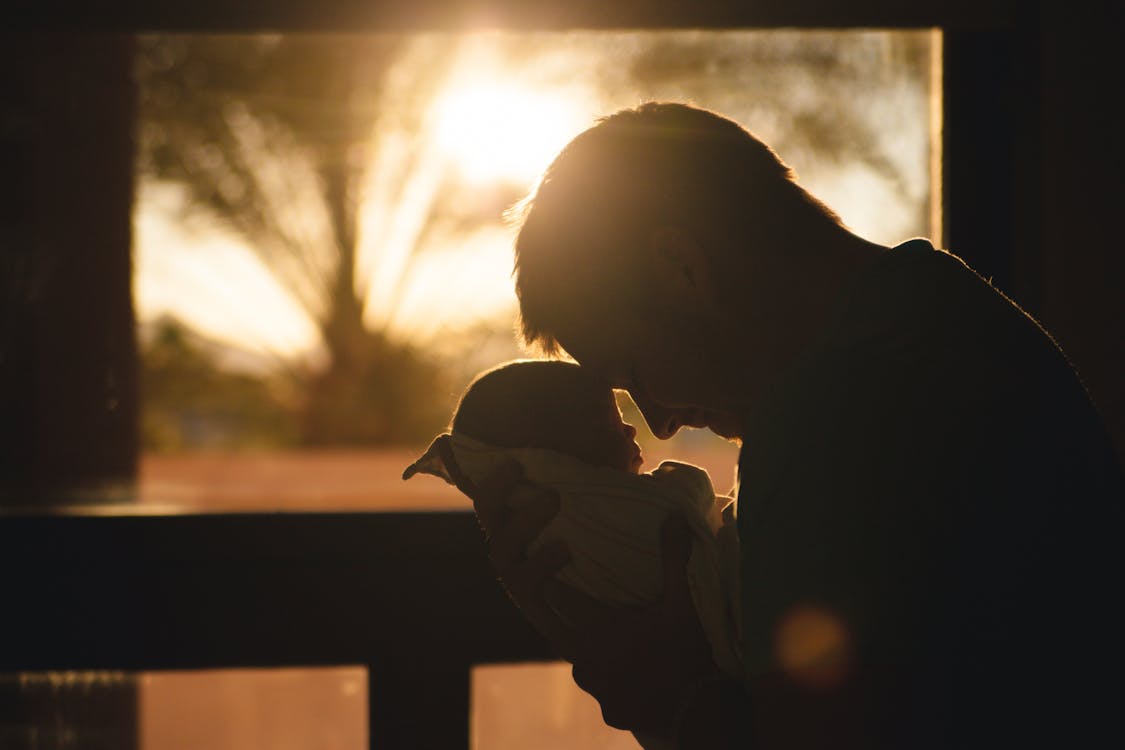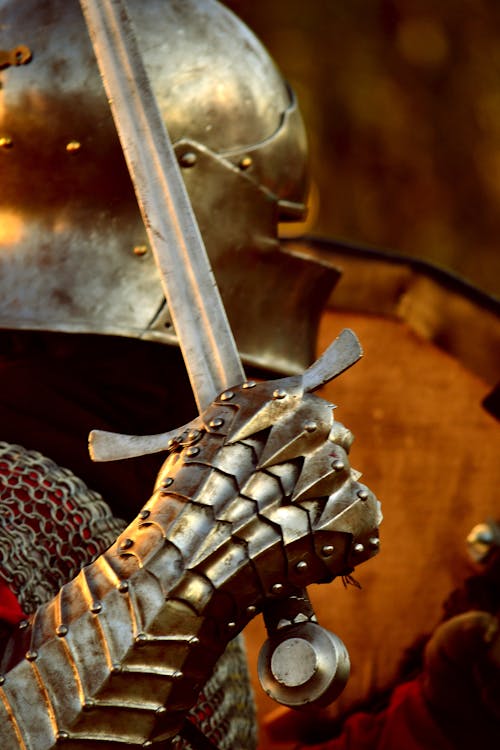Home » Mercy
Category Archives: Mercy
The Final Sign
“At that time the sign of the Son of Man will appear in the sky, and all the nations of the earth will mourn. They will see the Son of Man coming on the clouds of the sky, with power and great glory. And he will send his angels with a loud trumpet call, and they will gather his elect from the four winds, from one end of the heavens to the other.” Matthew 24:30-31
 On more than one occasion, the religious leaders demanded Jesus to show them a sign. They wanted some miraculous proof of His divinity claims [Matthew 12:38 & 16:1-3; Mark 8:11-12; Luke 11:29]. If you can perform on demand, then we can believe you, simple as that. But Jesus knew their hearts–it was neither that simple nor God’s will.
On more than one occasion, the religious leaders demanded Jesus to show them a sign. They wanted some miraculous proof of His divinity claims [Matthew 12:38 & 16:1-3; Mark 8:11-12; Luke 11:29]. If you can perform on demand, then we can believe you, simple as that. But Jesus knew their hearts–it was neither that simple nor God’s will.
They expected the sign promised in Daniel 7:13–the Son of Man, coming with the clouds of heaven. They expected the signs spoken of in the other prophets–darkened sun, moon and stars and trembling planets [Isaiah 13:10, Ezekiel 32:7, Joel 2:10 & 31, and Zephaniah 1:15]. They did not understand that these were the signs of the end and that they were not living in the end.
The sign reserved for that generation was Jesus’s death and resurrection [Matthew 12:39-40 & 16:4; Luke 11:30]. And when they were given that sign, they did not believe it. Not only that, but they sought to disprove their God-given sign, and they spread false stories so that others wouldn’t believe it either [Matthew 27:62-66 & 28:11-15].
But the signs that they longed to see are promised to we who live in the end times. Maybe they will come in our generation. Or maybe, in God’s mercy, they will not come until our grandchildren’s or our great-great-great grandchildren’s generation or even later. And whenever the signs do come, everyone on earth will see them simultaneously. Everyone will know the truth of who God is. Who we are. And how our sins nailed Jesus to the cross [Revelation 1:7]. This understanding will move the nations to mourn Jesus’s death at our hands [Zechariah 12:10].
Unlike the sign of Jonah, the sign of the Son of Man–our sign–will come like a thief in the night [Matthew 24:43; 1 Thessalonians 5:2 & 4; 2 Peter 3:10; Revelation 16:15]. People will not be watching for His coming. So the trumpet blast to announce Jesus’s return will take the world by complete surprise [1 Corinthians 15:52; 1 Thessalonians 4:16]. How much more will they be surprised when all across the earth the elect who have died are raised to eternal life and then we who are still alive and are left will be caught up together with them in the clouds to meet the Lord in the air [1 Thessalonians 4:16-17].
Are you ready? Are you watching? Are you answering His call to work in the harvest field in these final hours [Matthew 9:35-38]?
KCS
When God Lets Us Carry the Dishes
“Immediately after the distress of those days, ‘the sun will be darkened, and the moon will not give its light; the stars will fall from the sky, and the heavenly bodies will be shaken.’ ” Matthew 24:29
 When the day of the Lord comes, Scripture agrees that it will be lights out in the heavens and that the our solar system and everything in it will tremble [Isaiah 13:9-13 & 34:4; Ezekiel 32:7-8; Joel 2:10 & 30-31; Zephaniah 1:14-15; Revelation 6:12-14].
When the day of the Lord comes, Scripture agrees that it will be lights out in the heavens and that the our solar system and everything in it will tremble [Isaiah 13:9-13 & 34:4; Ezekiel 32:7-8; Joel 2:10 & 30-31; Zephaniah 1:14-15; Revelation 6:12-14].
How could it not happen this way?
God holds everything together in His power [Colossians 1:17; Hebrews 1:3]. And we daily take this miraculous goodness for granted.
The seasons continue without fail [Genesis 8:22]. The sun and the moon rise and set. The stars sing over us [Job 38:7]. Gravity does not become unfaithful. The earth runs in its perfect, life-sustaining orbit around the sun. Water cycle, oxygen cycle, animal and plant life cycles–all continue without need of human intervention. And in fact, when we do intervene, we generally disrupt the perfect harmony that God created.
So, when the day of the Lord comes, we will finally see and understand that we are not God.
We have not and cannot keep the seasons faithfully running–just look at the theoretical concerns about global warming. We have not and cannot hold one star, or moon, or planet, or the sun in place. We certainly could not keep an entire solar system functioning perfectly for one second let alone for thousands of years. We cannot even control an entire planetary cycle–not the water and not the oxygen we must have to stay alive.
What we can do is steward the life cycle of plants of animals [Genesis 1:28-30]. We can care for them while God sustains every detail of their life mechanisms and functions. We can use His wisdom to intervene when the effects of sin begin to break down their bodies in sickness and injury. We can help preserve their lives and our own lives, but only temporarily.
We cannot even endow a single cell with everlasting life.
So of course the heavens will tremble when the day of the Lord comes. When we accepted Satan’s lie that we could be our own god [Genesis 3:4-5], it was like a little child who insisted that they could carry a tray stacked with a mountain of dishes. But the father knew better. In his wisdom, he still held the most of the weight, keeping the tray balanced and walking with the child. But we as children do not pay attention to all that our Father God is doing. We foolishly believe that we are carrying the full weight of the world all by ourselves.
And when the day of the Lord comes, the father will stop holding onto the tray of dishes. He will stop protecting its balance with His might. He will let us see whether or not we are truly able to be God and hold all of Creation together in our strength and wisdom. And when God gives us that complete control, everything will begin to fall from its orbit.
But it’s all for the best. In heaven–the New Jerusalem–when God has made all things new, there will be no need for sun or moon or stars because God Himself will be our light [Isaiah 69:18-20; Revelation 21:22-25 & 22:5]. And in His perfect new creation, we will finally understand that He alone is able to sustain all things. Then we will lay down our sinful self-as-god ways and honor Him, just as we all should have.
Do you see the hand of God at work in the world? Or do you daily take for granted all that He is and does for us?
KCS
Prayers Gone Cold
“Pray that your flight will not take place in winter or on the Sabbath. For then there will be great distress, unequaled from the beginning of the world until now–and never to be equaled again.” Matthew 24:20-21
 In 70 A.D., Rome destroyed Jerusalem’s temple on a Sabbath. For Jews who fully observed the traditions, the Sabbath severely limited the distance one could to travel. But more than that, the Sabbath was a day of repose and celebration. People were not on their guard, but relaxing and enjoying.
In 70 A.D., Rome destroyed Jerusalem’s temple on a Sabbath. For Jews who fully observed the traditions, the Sabbath severely limited the distance one could to travel. But more than that, the Sabbath was a day of repose and celebration. People were not on their guard, but relaxing and enjoying.
A Sabbath unrest would have come upon them suddenly, so that they would be scrambling to shift gears and get to safety. And winter obviously would have created many additional physical hardships–harsh weather, sparse food and possibly water, shorter days, and the like.
But Jesus tells the disciples to pray that these days would not come on the Sabbath or in winter. Pray. Earnestly seek God that it will not happen at that time. Pray and ask God because He alone is able to intervene in the course of world history [Genesis 18:16-33]. Though invading armies seek to destroy during the Sabbath rest or drive out into the cold winter winds, God alone is able to thwart their intentions, to delay them by His hand of mercy outstretched as a hedge of protection around us.
Notice that we cannot delay the attack forever. But we can pray that He protects us until a time when we are better able to escape. The effects of sin will come to pass, but God is able to preserve us through them if we seek Him.
In Matthew 24, we see that Jesus spoke these things to His disciples in private in the days leading up to His death and resurrection. About 40 years later when the temple was destroyed, many of them were old men living and ministering the gospel far from Jerusalem in the uttermost corners of the known-world. But Josephus, the Romano-Jewish historian, was present at the destruction and wrote a nearly identical firsthand account of the distress as Jesus’s prophecy here.
We know from history that the early church flourished in the city and in the country of Israel. And we know from the epistles that the apostles taught about a coming destruction [2 Thessalonians 2:1-4]. We also know from Jesus’s own words that the love of many grew cold [Matthew 24:12] and likely, their prayers did as well.
And what about us today? We have the book of Revelation, and in fact we have the completed scripture in the Bible. We can know the signs of the end. And we can also pray that God will intervene in our each and every day.
But do we? Do we earnestly seek Him to avert disaster on our behalf? Do we seek Him in the midst of a disaster like the COVID-19 pandemic, praying that He–who alone is able to snuff out this disease with a word–will do so? Or have we let our prayers grow as cold as our love?
KCS
People or Things?
“Let no one on the roof of his house go down to take anything out of the house. Let no one in the field go back to get his cloak. How dreadful it will be in those days for pregnant women and nursing mothers!” Matthew 24:17-19
 Notice that Jesus tells the disciples that when the end time abomination comes, flea to the safety of the mountains–just as they would when Rome destroyed the temple. No one should think to their possessions. Let your treasures be in heaven alone [Matthew 6:19-21]. Seek to escape with only your life. For, if you try to save your possessions, you may do so at the cost of your life [Matthew 16:25].
Notice that Jesus tells the disciples that when the end time abomination comes, flea to the safety of the mountains–just as they would when Rome destroyed the temple. No one should think to their possessions. Let your treasures be in heaven alone [Matthew 6:19-21]. Seek to escape with only your life. For, if you try to save your possessions, you may do so at the cost of your life [Matthew 16:25].
Jesus notes that it will be especially difficult for pregnant women and nursing mothers. This is because they think not just of themselves, but of their child–whether unborn or too small to care for itself. A mother cannot think only of saving only herself; she is wired with an elevated sense of anxiety for both self and child. The emotional stress and the physical difficulty of trying to flea while caring for self and baby will make this event horrible for new and expectant mothers.
And surely, Jesus was also thinking about how Rome would mistreat women and children shortly after his lifetime. If a slave has a child, it does not belong to her according to most human practice. Her child is the property of her master. And the master is free to treat the child as he chooses and to sell the child away from its mother. The emotional torment for women and their children in such times is truly dreadful.
Our attachment to human life, though, is a commendable burden. It is God’s image in us [Genesis 1:26-28]. He does not desire that any should perish and this same protective love is innate in us as His Creation [2 Peter 3:9].
But our attachment to material possessions is not of God [1 John 2:15-17]. It is the sin nature in us seeking to worship–assign worth and value–to the finite and often corrupt works of our own hands rather than valuing human life, the work of God’s hands. It is idolatry in its most basic sense.
When Jesus sent out the disciples, He instructed them not to take anything with them–no money, no food nor even a change of clothes [Matthew 10:9-19; Luke 9:3]. Their ministry wasn’t going to be about providing for themselves. It wasn’t going to be about flaunting what they already had. It was going to be about total dependence on God and His Word.
And so it will be for us at the end of all things. When the end comes, there is nothing we can do by our own hands to save our very lives. Only by total dependence on God alone will we find life through it all. And not just life, but abundant and eternal life [John 3:16 & 10:10].
When things get tough, do you look to yourself or to God? When the end comes, where will you find your help?
KCS
The Lament & Longing of God
“O Jerusalem, Jerusalem, you who kill the prophets and stone those sent to you, how often I have longed to gather your children together, as a hen gathers her chicks under her wings, but you were not willing. Look, your house is left to you desolate. For I tell you, you will not see me again until you say, ‘Blessed is he who comes in the name of the Lord.'” Matthew 23:37-39
 O Jerusalem, whose very name means Foundation of Peace or City of Peace where Jesus would lay down His life for our sins to make peace with God. O Daughter of Zion, on whose lowly eastern hills God chose to make His dwelling among men; He is not aloft and aloof as the nations suppose. O heart of God’s chosen people, Israel, who does not choose His heart in return.
O Jerusalem, whose very name means Foundation of Peace or City of Peace where Jesus would lay down His life for our sins to make peace with God. O Daughter of Zion, on whose lowly eastern hills God chose to make His dwelling among men; He is not aloft and aloof as the nations suppose. O heart of God’s chosen people, Israel, who does not choose His heart in return.
Hear the lament of a loving God for the world He created and the longing to reconcile all people to Himself.
Despite the fact that His chosen people killed His messengers of truth, peace, mercy and hope [2 Chronicles 24:21; Matthew 5:12 & 10:23; Hebrews 11:32-38], God longed to protect them. To shelter them under His wings and guide them to the safety for which they constantly clamored [Psalm 91].
But the truth was, though Israel longed for the protection of the Almighty, it was not because they loved Him and wanted to live in peaceful communion with Him. They simply wanted God to bless whatever they did, even though everyone was doing whatever they thought was right for themselves and not living according to God’s righteousness [Judges 2:11, 3:7, 3:12, 4:1, 6:1, 10:6, 13:1, 17:6 & 21:25; Proverbs 21:2; et al]. They wanted Him to make life easy by removing every obstacle and hardship, without expecting them to be holy as He is holy in return.
In other words, they wanted God to uphold their false self-as-godhood.
But time and again in the Old Testament, God cautioned Israel about the consequences of living this way [Deuteronomy 6:10-19; 1 Kings 9:6-9; Jeremiah 22:1-5; & the many prophecies leading up to the exile]. Now Jesus was letting them know that, not only did He not come to remove the oppression of Rome–as they had hoped the Messiah would–but in fact, things were going to get worse because Israel’s heart was still far from God.
So far that they didn’t recognize their long-hoped-for Messiah. So far that, though they welcomed Him as king to Jerusalem, they returned to the normalcy of life as soon as they saw that He had not come to do what they desired [Matthew 21:8-11, 17 & 23]. So far that they crucified the very one for whom they’d waited their whole lives.
And only when Jerusalem–the heart of God’s chosen people, Israel–acknowledges Jesus as the Messianic King He is, will they see Him again [Zechariah 14:4].
To this day, God would dwell in each and every one of us, if we would choose Him over ourselves. We cannot be His in name only. We cannot claim to serve God and still do whatever we feel like in this world. We cannot expect God to uphold our self-as-god complex and deny Him when He doesn’t.
Does your heart long for God the way He longs for you?
KCS
Reactant Pride and Doubt
“And so upon you will come all the righteous blood that has been shed on earth, from the blood of righteous Abel to the blood of Zechariah son of Berekiah, whom you murdered between the temple and the altar. I tell you the truth, all this will come upon this generation.” Matthew 23:35-36
 Despite the misguided works theology and even their love-of-self-and-therefore-hatred-toward-others lifestyle, how could these leaders become responsible for all of the righteous blood shed in the history of the world? Many would balk at the seeming unfairness of this Scripture. But look closer.
Despite the misguided works theology and even their love-of-self-and-therefore-hatred-toward-others lifestyle, how could these leaders become responsible for all of the righteous blood shed in the history of the world? Many would balk at the seeming unfairness of this Scripture. But look closer.
From Abel, the first person to be murdered–who was murdered at the hands of his own brother [Genesis 4:8-12; Hebrews 11:4]. To Zechariah, whose name means God remembers. An Old Testament prophet who brought his fellow-returning-exiles a message of hope and encouragement. Through Him, God proclaimed to Israel that her greatness was not past but was still to come in His and her future glory.
Jesus told them, All this will come upon this generation.
Yes, the religious leaders were guilty, just as we all are for our own sin. But Jesus is letting them know what the weight of their next choices would be. By crucifying Jesus, they would bring the guilt of all the murdered righteous men for all time to bear on their generation. Not that they would shoulder the guilt themselves, but that, by their hands and before their eyes, Jesus Himself would become the atoning sacrifice, bearing the guilt and shame of all of the murders of all time. And, of course we know today, not just the murders but for all sin for all time.
Scripture tells us that we are God’s children and coheirs with Christ–He is our brother, and, like Abel, our sins murdered Him on the cross. Knowing full well what we would do to Him, He stepped into our exile in the flesh, proclaiming in His person that God remembers us. God consciously keeps us in mind at all times and thinks on the goodness He has for us in Christ Jesus. And just like the message Zechariah proclaimed to Israel, our greatness is not past. Nothing that we have done or been in this life will ever compare with God’s future glory for those who are in Christ Jesus.
*Minds blown* And hopefully, hearts turned to God.
But as it happened and happens so often, the truth hardens the very hearts it was intended to soften. Like a chemical reaction, trace amounts of pride and doubt react in the presence of truth, often violently flaming up, resulting in a seared and hardened heart toward God.
Does God’s Word make you bristle? Has pride and doubt kept you from accepting His truth? Do you still long for His goodness? Allow the Holy Spirit to work in your heart, removing these reactants so that truth can take root and soften your heart toward God.
KCS
A Million Billion Mercies
“The first angel sounded his trumpet, and there came hail and fire mixed with blood, and it was hurled down on the earth. A third of the earth was burned up, a third of the trees were burned up, and all the green grass was burned up.” Revelation 8:7
 When people think of the End Times as described in the book of Revelation, the focus is often on the doom and destruction. It’s hard to read a verse like Revelation 8:7–about a hail of fire and blood that burns up a third of the earth, a third of its trees and all healthy grass–and not feel fearful.
When people think of the End Times as described in the book of Revelation, the focus is often on the doom and destruction. It’s hard to read a verse like Revelation 8:7–about a hail of fire and blood that burns up a third of the earth, a third of its trees and all healthy grass–and not feel fearful.
But look at the verse again. And look at the verses that come after it [Revelation 8:7-12].
…a third of the earth
…a third of the trees
…a third of the sea
…a third of the sea creatures
…a third of the ships
…a third of the waters
…a third of the sun and moon and stars
Do you see the mercy? If God truly wanted retribution, why not just fully destroy? Why not just wipe people from the face of the planet? He is more than capable of it. Just ask Noah [Genesis 6:9-9:17].
But look at the Divine Restraint in the so-called judgments of Revelation. Two-thirds of all these things remain. Why? Because so great is God’s love for human kind that He doesn’t desire any to perish [2 Peter 3:9]. So great is His love for us that He sent His One and Only Son to die for our sins so that every one of us could be reconciled to God and have life eternal [John 3;16-17].
When we see a pandemic like Coronavirus burning through the world, we tend to blame God for the loss of so many lives. But underlying the accusation is the fact that we daily take for granted millions and billions of God’s mercies.
Everyday, just over 7.5 billion people miraculously wake up with the breath of life in their lungs. And everyday just over 7.5 billion people return to their beds to rest. That in itself is miraculous!
That’s more than 15 billion mercies from God’s hand in one day without counting the millions and billions more that come in the hours between waking and sleeping.
How many tragic accidents are averted? How many near death experiences? How many crimes thwarted? How many life-giving miracles meted out? How many prayers of provision answered? All without most of us ever acknowledging that God is responsible for these mercies! Why?
Because God’s mercy rarely makes the news.
Who reports on the goodness of an uncommitted crime? Who gives God praise for the houses that are not burned down or swept up in a tornado? Who blesses God for the goodness of more than 250 new lives being born on the planet every minute of every day? And who gives God the glory for, not just positioning the earth in just the right place in the universe to sustain life, but holding it there every minute of every hour?
Fear. Is. A. Liar. And it wants us to blame God for our finite ability to preserve ourselves.
Let us lift our eyes to the Lord our help, our God and our salvation [Psalm 27 & 121]. Let us think on all of His million billion daily mercies so that His peace, which transcends all understanding, will guard our hearts and minds from blaming Him for the repercussions of our congenital finiteness or worse, denying His existence because of them [Philippians 4:7-8].
Have you thanked God for the millions of mercies in your life today?
KCS
From the Student Question Board: Is Coronavirus God’s Judgment?
“The great day of the Lord is near—
near and coming quickly.
The cry on the day of the Lord is bitter;
the Mighty Warrior shouts his battle cry.
That day will be a day of wrath—
a day of distress and anguish,
a day of trouble and ruin,
a day of darkness and gloom,
a day of clouds and blackness—” Zephaniah 1:14-15
 As the coronavirus pandemic continues to sweep across the globe, a question on many hearts and minds is, is this God’s judgment?
As the coronavirus pandemic continues to sweep across the globe, a question on many hearts and minds is, is this God’s judgment?
First, we need to understand what is meant by judgment.
Immediately, the human heart thinks of a misfortune or calamity viewed as a divine punishment. Because fear has to do with punishment [1 John 4:18]. And even though God’s nature is love, He is also holy and just.
This is why we often think of judgment as a court of law where we are found innocent or guilty. Did we keep God’s laws–His checklist of right and wrong? Or are we guilty of breaking them? This is why we feel that we are good enough. We feel there’s enough evidence of having kept the checklist most of the time that we’ll be able to make a case for ourselves when we stand before God. This is also why people blame God for a tragedy like COVID-19. How could you punish good people? What bad thing have we done to deserve this?
But in actuality, we need to think of judgment as two kings bringing their armies to a battlefield. Both kings are seeking supreme authority. Both kings will be judged in the standoff with the other. And only one king will win.
The sin nature that entered Creation through Adam and Eve [Genesis 3] cannot continue forever. Sin naturally leads to death [Romans 6:23; James 1:15].
But why? Because the essence of sinfulness is not a checklist of right and wrong. It’s not about pleasing and displeasing God. It is living Satan’s lie that we can be our own gods and not die [Genesis 3:4-5].
When Adam and Eve chose to disregard God, they stepped out from under His authority in all things. God alone is omnipotent–He alone is able to hold every cell in our bodies together perfectly for eternity. But we have finite power. As our own gods, we are only able to do so much through nutrition, hygiene, fitness and medicine to preserve the life we have. And even the strongest and most disciplined among us cannot sustain their own life forever. Only our Creator has that power.
You see, God’s judgment is not divine retribution. He isn’t punishing us for all the things we’ve done wrong. God’s judgment is a light of truth showing us that we are not Him. If we were truly God, then when invading armies come, we could flick them off with a finger and crush them underfoot. If we were truly God, then when a pandemic like COVID-19 comes, we could zap it out of existence with a word. If we were truly God, then He would submit to us and do our bidding.
Instead, this pandemic should make us realize:
1) Coronavirus has come because the sin nature–us in God’s place–is powerless. It shows us our inability to maintain perfect health and life in both our own bodies and the world we live in;
And
2) God is not punishing us, but where He has removed His hand of life-sustaining mercies it is so that He can extend mercy to those who remain. It is so that we can recognize Him alone as God, and thereby repent and be reconciled to Him that we may have eternal life.
Will you recognize God for who He is now and receive His grace? Or will you choose to standoff against Him in your own strength to prove that you are god when the real judgment comes?
KCS
Camel-Blind Gnat Counters: What to Do When Religious Leaders are Hypocrites–Part 5
“Woe to you, teachers of the law and Pharisees, you hypocrites! You give a tenth of your spices—mint, dill and cumin. But you have neglected the more important matters of the law—justice, mercy and faithfulness. You should have practiced the latter, without neglecting the former. You blind guides! You strain out a gnat but swallow a camel.” Matthew 23:23-24

Jesus affirmed tithing here–that is, giving ten percent of our income to the church. In His earthly day, it was also customary to tithe on garden produce.
The Pharisees took this garden tithe extremely seriously. They made a big show of counting the tiniest herb leaves into exact stacks of ten percent to give to God, a very painstaking task.
The Pharisees also poured their water through a cloth so that they wouldn’t accidentally drink gnats–the tiniest of unclean creatures.
On the other hand, they dispensed with the Godliness aspects altogether. Things like justice, mercy and faithfulness were arbitrary to them and often practiced only as it suited their needs. Jesus likened this godless-self-righteousness to a camel, the largest of unclean animals in their area. He’s publicly calling them the thing they feared worst–unclean (a.k.a. Law breakers).
And again He calls them blind guides. They’re leading Israel further and further from the truth of God and they don’t even realize it.
So what do we do when religious leaders insist on outward appearances of Godliness, but neglect the heart of love?
Continue the outward practices that God desires (i.e. tithing) but do so from a heart for Him. And do so while first and foremost living a Godly life, being remade into His image, so that His love and mercy and justice flows freely to those around you.
Are you a t-crossing, i-dotting, camel-swallowing gnat strainer about keeping good religious habits? Does this stem from a genuine heart for God and produce a life lived in love toward others? Or does it lead you to think less of others who don’t keep up these practices?
KCS
Heavenly Dress Code
“‘But when the king came in to see the guests, he noticed a man there who was not wearing wedding clothes. He asked, ‘How did you get in here without wedding clothes, friend?’ The man was speechless. Then the king told the attendants, ‘Tie him hand and foot, and throw him outside, into the darkness, where there will be weeping and gnashing of teeth.’ For many are invited, but few are chosen.'” Matthew 22:11-14
 In modern culture, this passage reads like the host is being condescending. Why didn’t you dress nice enough for this event?
In modern culture, this passage reads like the host is being condescending. Why didn’t you dress nice enough for this event?
But remember that, in this culture, the wedding host provided robes for his guests to wear. The robes demonstrated respect for the host, but they also bestowed the host’s best wishes on the guests. Also remember that the robe was just one of many kind gifts meant to refresh the guests after their journeys. And once they were fully prepared to enter the banquet hall, the host would individually greet each one with a kiss.
So this man found without the provided robes is quite symbolic for us. Obviously, he refused the host’s wedding garment. Which means he:
a) turned down a graciously given free gift
b) chose to disrespect his host and, therefore, set himself above his host
c) dismissed the hosts well wishes for him as the guest
and
d) in full defiance, swaggered into the banquet hall to receive the host’s greeting
Does anyone else hear cricket chirps when they picture this scene? I mean, what could be more brazen in this situation?
And yet the host greets him as friend–just as he did the complaining vineyard workers and just as Jesus would address Judas on the night he betrayed Him [Matthew 20:13 & 26:50].
Notice that the man’s self-assured brazenness melts away in the presence of the king. He finally understands the error of his ways. But then it is too late to make a different choice.
So it is with us. God graciously offers each of us the free gift of salvation, the robe of Jesus Christ in exchange for our filthy rags [Isaiah 64:6; Galatians 3:27; Ephesians 2:8; 2 Peter 3:9]. But it is our choice whether or not to accept this robe of blessing and wear it in our lives to the glory and honor of God. And when we stand before Him one day, if we refused His robe in this life, it will be too late to change our mind. Hell awaits all those clothed in their own self-assuredness.
This is where the world parts company with God, saying that He can’t be gracious and loving and merciful if people can end up in hell [Matthew 8:12; Revelation 20:14-15].
Is it not gracious and loving and merciful to give us a lifetime of opportunity to choose God over ourselves? And do we conveniently forget that God is also holy and righteous and just? Holy meaning that the robe exchange is a must to enter His banquet hall. Righteous meaning that it’s the perfectly and infinitely right way to live. And Just meaning that those who choose to live contrary this rightness have also chosen to accept the consequences for this lifestyle choice, because He will not fail to do what He said He would do from the beginning.
Have you refused the free gift of Jesus Christ? Do you dishonor God with your life and forgo His infinite blessings? When you stand before Him, what will you be wearing?
KCS
